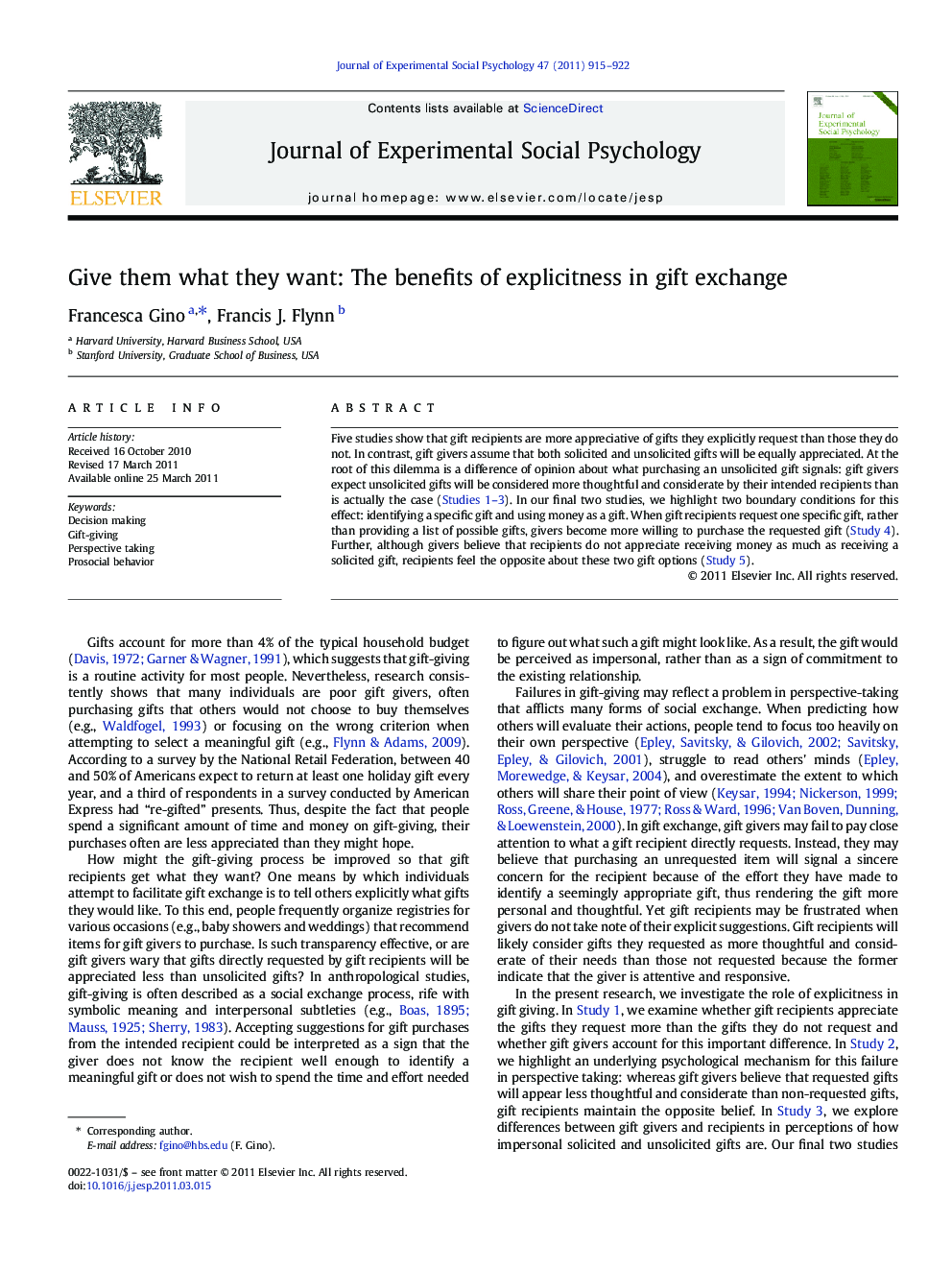| Article ID | Journal | Published Year | Pages | File Type |
|---|---|---|---|---|
| 948156 | Journal of Experimental Social Psychology | 2011 | 8 Pages |
Five studies show that gift recipients are more appreciative of gifts they explicitly request than those they do not. In contrast, gift givers assume that both solicited and unsolicited gifts will be equally appreciated. At the root of this dilemma is a difference of opinion about what purchasing an unsolicited gift signals: gift givers expect unsolicited gifts will be considered more thoughtful and considerate by their intended recipients than is actually the case (, and ). In our final two studies, we highlight two boundary conditions for this effect: identifying a specific gift and using money as a gift. When gift recipients request one specific gift, rather than providing a list of possible gifts, givers become more willing to purchase the requested gift (Study 4). Further, although givers believe that recipients do not appreciate receiving money as much as receiving a solicited gift, recipients feel the opposite about these two gift options (Study 5).
